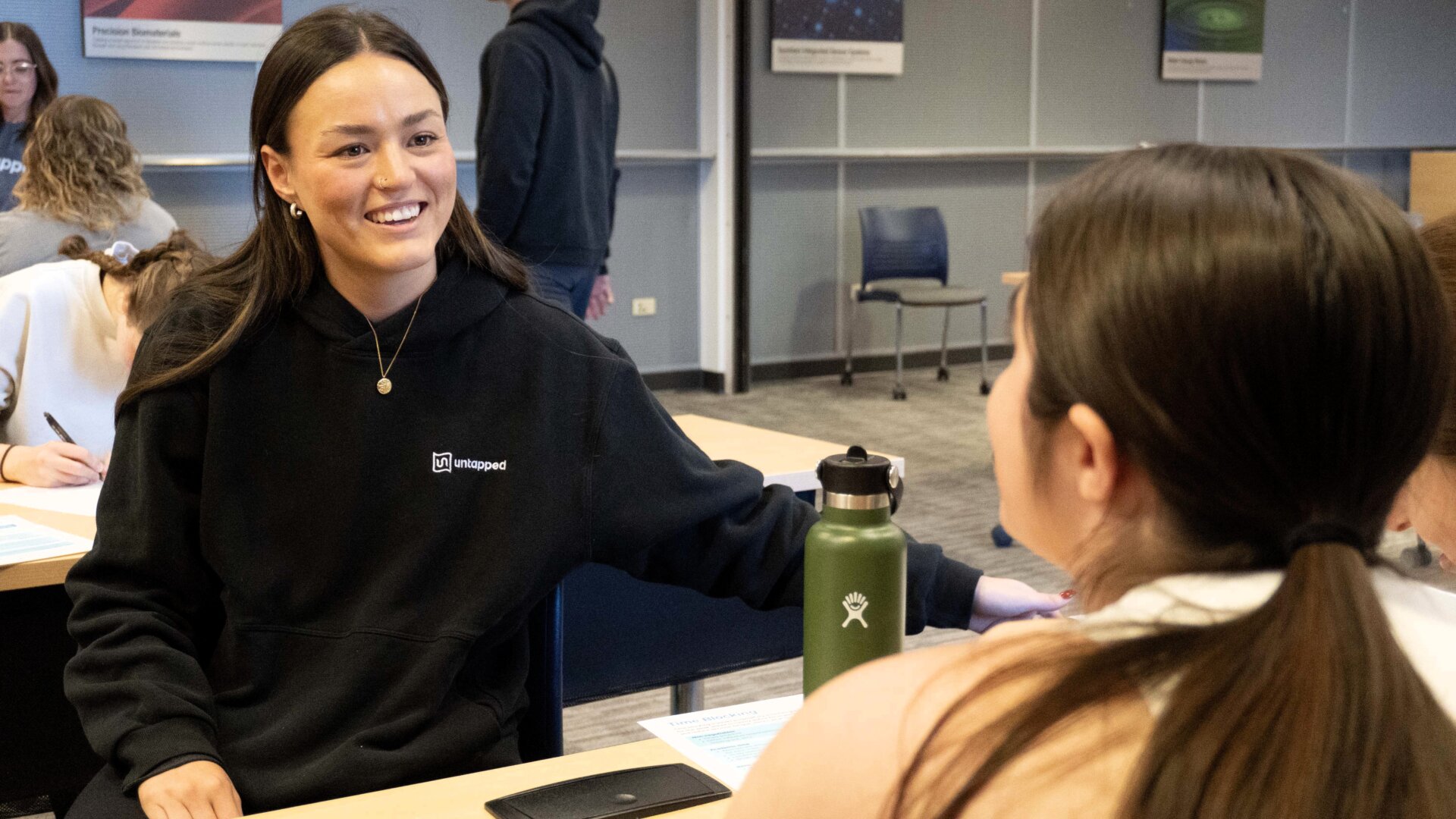The Impact of ADHD, Self-Esteem, and Executive Function Coaching on Middle and High School Students
Ben’s Story: The Struggle for Confidence
Ben was a student who tried his best to stay focused in class every day but ADHD often made it difficult. Sometimes his mind would drift to the video game he played the night before, and other times he’d find himself daydreaming about anything but math. He often caught himself staring at the clock, just waiting for the bell to ring, feeling more and more disconnected from what was happening in the classroom. Ben struggled with self esteem.
In class, Ben’s teacher called on him to answer a question he hadn’t even heard. The giggles from his classmates made his face flush with embarrassment, and he felt a tight knot forming in his chest. That was the moment Ben started feeling like he was always behind, like he was missing something everyone else understood. He stopped raising his hand and his belief in his own abilities faded. He began to feel like he wasn’t good at anything like he wasn’t as smart as everyone else.
Ben’s story is common for middle and high school students with ADHD (Attention Deficit Hyperactivity Disorder) who struggle with focus, organization, and impulsivity. These challenges often lead to negative feedback, which makes students feel like they’re constantly in trouble or just not “good enough.” Experts like William Dodson, M.D., estimate that children with ADHD receive an average of 20,000 more negative messages by age 10 compared to their peers. This constant stream of criticism has a significant impact on self-esteem and affects a student’s confidence in learning.
Academic Challenges and Negative Self-Perception
Middle and high school are times when many students start comparing themselves to their peers, and for students like Ben, this can be a painful process. Struggles with concentration and organization are common executive function challenges faced by those with ADHD, often leading to lower grades, which only reinforces the feeling of being “less than.”
When Ben saw his classmates breezing through assignments that left him confused, it was easy for him to believe he wasn’t as capable. A study from the Journal of Attention Disorders found that students with ADHD are three times more likely to struggle academically compared to their peers. This struggle can be a major blow to their self-esteem and confidence, especially when they’re trying just as hard, if not harder, than everyone else.

Social Challenges and Isolation
ADHD doesn’t just affect academics. Socially, ADHD can make it harder to connect with peers. Impulsivity might lead to blurting out comments at the wrong time or missing social cues, resulting in awkward moments that push friends away.
For Ben, these moments piled up until he found it easier to spend time alone rather than risk embarrassment. The fear of making mistakes made him stop trying, which only increased his loneliness. This cycle made it even harder for him to build the self-esteem and confidence he desperately needed.
A study published in the Journal of Developmental & Behavioral Pediatrics found that children with ADHD are more likely to face rejection from peers, with about 50-70% reporting issues in forming friendships. This rejection can have long-lasting effects, chipping away at a student’s self-worth over time.
Camila’s Journey: The Rollercoaster of Friendships
Then there’s Camila. Every day, she tried to make her friends laugh because she loved making people happy. One day, she made a joke during class that didn’t land well. Her classmates laughed at her, not with her, and Camila felt her face grow hot with embarrassment.
After that, she hesitated more and more, afraid she’d make things worse. Eventually, Camila found herself sitting alone at lunch, staring at her untouched food, wondering why she couldn’t be like everyone else.
Camila’s story shows how ADHD can interfere with making lasting friendships. The impulsivity and hyperactivity that often come with ADHD make it easy to feel out of sync, which can lead to rejection or bullying. Over time, these social struggles take a toll on a student’s self-esteem and prevent them from developing the confidence they need to thrive.
The Negative Feedback Loop
Both Ben and Camila illustrate a common pattern of academic and social struggles leading to negative feedback, which then fuels negative self-talk. When a student with ADHD repeatedly hears they’re not doing well, whether in grades or friendships, they start to believe there’s something wrong with them.
This belief becomes a self-fulfilling prophecy. They stop trying, which leads to more setbacks, and the cycle continues.

Breaking the Cycle: The Power of Support
The cycle can be broken with the right kind of support. Teachers have limited ability to provide individualized support to every student, given the demands of managing a full classroom. This is where additional mentorship, coaching, parents, or a caring adult can make a difference.
A coach might have worked with Ben to help him navigate academic and social challenges. For example, by giving Ben strategies to handle rejection from peers and providing a safe space to talk through his feelings, the coach could help Ben develop resilience. With this support, Ben could begin setting achievable goals that boost his self-esteem.
At Untapped Learning, we believe in helping students like Ben and Camila break out of this negative cycle. By focusing on executive function coaching skills, like planning, organization, and self-advocacy, students learn to take control of their learning and start seeing their unique strengths. This support can transform their school experience and, more importantly, how they see themselves.
Executive Function Coaching and Building Confidence
Ben’s Approach: Developing Resilience through Support
Ben used to feel overwhelmed by large assignments, like his science project. One day, with his mentor’s help, he learned to tackle the project step by step. Instead of focusing on the entire assignment, Ben set a goal to just start with the research phase.
With his mentor’s encouragement, Ben managed to complete each part of the assignment one at a time, and they celebrated each small achievement along the way. This approach helped Ben see that he could accomplish challenging tasks with the right mindset and support, which ultimately boosted his confidence.
Lesson: Focusing on small, manageable actions and getting positive reinforcement along the way helps students develop resilience and feel capable.
Camila’s Challenge: Managing Impulsivity with Support
Camila often struggled with impulsivity, which made it difficult for her to stay focused on her homework. She would frequently switch tasks, get distracted by her phone, or abandon her work to follow an impulsive idea. Her coach recognized that Camila needed strategies to manage these impulses and stay on track.
Together, they worked on creating a structured environment. Camila started by setting short, achievable focus sessions and used a timer to work for 20 minutes without distractions. Her study session was followed by a quick break to do something she enjoyed.
Her coach also helped her set reminders and find accountability partners. Over time, Camila learned to recognize when impulsivity was taking over and use these strategies to regain control. This helped her not only complete her assignments more effectively but also feel more in control of her actions, which significantly boosted her confidence.
Lesson: Providing structured support and strategies to manage impulsivity can help students develop better focus, improve their work habits, and build confidence.
Isaac’s Progress: Handling Frustration through Achievable Goals
Isaac felt frustrated by his grades, especially when he saw others doing better despite his efforts. His parents suggested setting small, achievable goals, such as completing his homework on time each day. By breaking down his overall goal of improving his grades into daily actions, Isaac began to notice progress.
Each week, he reflected on what went well and where he could improve, which helped him stay motivated. As his consistency improved, so did his grades, and each small win gave him a boost in confidence.
Lesson: Setting specific, achievable goals helps students experience progress, which is needed for improving self-esteem and motivation.

Additional Ways to Help Your Child Build Self-Esteem
Find an Outlet for Positive Feedback
Encourage your child to engage in activities outside academics where they can excel. Whether it’s a sport, music, art, or drama, these outlets provide opportunities for your child to experience success and build confidence.
Real life often rewards those who get really good at one thing, and students with ADHD often find their niche outside the traditional school system. Finding that outlet can help them see their value and talent beyond the classroom, boosting their self-esteem.
Praise the Process, Not Just the Outcome
Praise the effort and persistence your child puts into their work, regardless of the final result. This helps them see the value in their dedication and builds a growth mindset, key to boosting self-esteem.
Use Positive Reinforcement
Provide praise or small rewards when your child demonstrates positive behavior or reaches a goal. This encourages the repetition of positive behaviors and helps build their confidence.
Create a Supportive Environment
Work to build communication so your child feels comfortable discussing challenges without fear of judgment. Knowing they are understood and supported at home helps them step out of their comfort zone and build confidence.
Encourage Resilience Through Real-World Experiences
Guide your child through real-world challenges to teach them that setbacks are part of the journey. Emphasize that mistakes are opportunities to learn, helping them build resilience and self-worth.
Building Resilience Through Coaching
Help students understand that their brains work differently, so they can see their differences as unique strengths. This positive perspective fosters resilience and confidence in their abilities.
At Untapped Learning, our executive function coaches specialize in helping middle and high school students with ADHD build confidence and improve their skills. Reach out today to learn how we can support your student in unlocking their potential.
For More:
Children with ADHD Avoid Failure and Punishment More Than Others
Peer Rejection and Friendships in Children with Attention-Deficit/Hyperactivity Disorder





